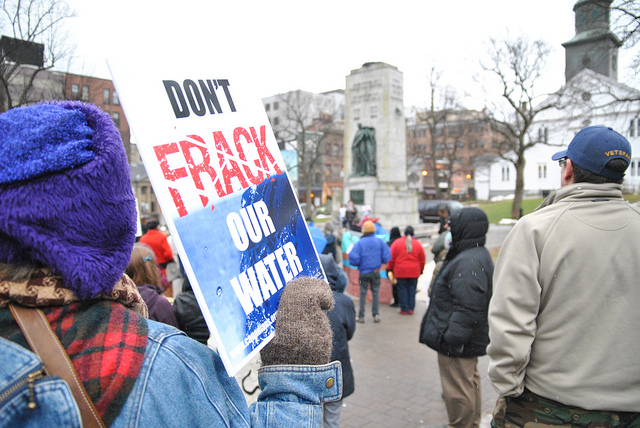As we contemplate fracking and the possibility of a pipeline to bring not so much crude oil as diluted tar sands bitumen to the East Coast, it would be useful to remind ourselves of the big picture — something we’re not very good at.
Even now, worldwide, we’re subtly in the process of heading for the hills in retreat from climate mayhem, and at huge and mounting cost, but we have almost amusing — if it wasn’t so serious — ways of not admitting it.
A recent back-page article entitled “Climate change plans in works” grabbed me. It explained that local governments across the country need to come up with a climate change plan in order to tap into federal gas tax money.
That would be Harper government tax money. Here’s what Harper’s about: triple tar sands production, declare environmentalists enemies of the state, fire the scientists, ransack environmental and fisheries laws and generally make sure that Canada remains a world leader in profitable pollution.
So what’s with giving money to municipalities to batten down the hatches? Isn’t that admitting the obvious, anathema to Harper dogmatists?
Actually, it’s probably an accurate political reading: our addiction to the dirtiest growth trumps self-preservation. The message is: climate change is just a local problem, so let’s indeed stop building on the lowlands, and have emergency plans for if the bridge or the dam collapses. Furthermore, nurse the following strategy for the long term: hunker down and hope the next catastrophic event misses us and hits the other guy.
Just don’t make a big deal about us causing it with our unsustainable ways. That would ruin the whole game.
In the above-mentioned article, the planning director of the Municipality of West Hants was quoted saying: “When our committee looked at it (warming) as one of the hazards, I think they had their eyes opened a bit.”
Eyes opened “a bit.” That would be where the public is at, after decades in which mounting evidence has clashed with societal and economic inertia and outright ideological hostility to the facts. And they’d open more than a bit if even the last six months worth of news were properly contemplated.
Here’s some of it.
In May, scientists recorded, for the first time, at a monitoring station in Hawaii, carbon dioxide in the atmosphere at 400 parts per million. That’s considered a danger point, and halfway to the civilization-wrecking 800 ppm which the Intergovernmental Panel on Climate Change has projected for the end of the century if we stay on the same track.
The first danger point, established in 1988, was 350 ppm. One prominent activist noted: “With the last 50 ppm we melted the Arctic. What will the next 50 bring?” Let alone the next 400.
Outfits like the World Bank and the U.S. Academy of Sciences have been working on the business of rising seas. Hurricane Sandy caused an estimated $50 billion in damage in New York. By 2050, says a World Bank study, the global bill could be over $1 trillion annually as rising seas, driven by storms, slam into low-lying cities and communities. We have plenty of those in Atlantic Canada.
Meanwhile, southern Alberta went under water at a cost of $5 billion, ruining Alberta’s finances. So did Toronto. The tornadoes, the droughts, the fires all worsened. True, it’s not all global warming. We’ve unwisely built in harm’s way — but that was before 100-year storms became every-year storms.
Back to fracking. The news there is, at first glance, wonderful. Fracked natural gas, along with economic recession and other factors, dropped U.S. carbon emissions by 13 per cent since 2006 by replacing coal.
At second glance, not so good. Fracked wells were found to leak like sieves with suspicions that this makes fracked gas as dirty as coal. Furthermore, because oil shales are also being fracked, and the gas “flared” off into the atmosphere, this wasteful and polluting practice is rising again in North America after declining for years.
In Nova Scotia, fracking would only be justified if the technology improved and we actually needed the gas locally.
And about the pipeline. The pipeline companies made the pitch that this would be a great nation-building project, rather than a third choice after neither the U.S. nor British Columbia wanted it.
There are tons of variables. I doubt it will get here just on straight economics. However, if it must, on grounds that tar sands oil is going to keep expanding no matter what, let us at least admit that this is not progress, but rather a substitute for what we should be doing if we respected our world and our own future.
Ralph Surette is a freelance journalist living in Yarmouth County. This article was first published in the Chronicle Herald.
Photo: Paul B. (Halifax)/flickr



